afterLoad (455.83KB) (693μs)
afterInitialise (1.28MB) (28.35ms)
afterRoute (856.09KB) (11.38ms)
beforeRenderComponent com_tags (21.05KB) (392μs)
afterRenderComponent com_tags (2.99MB) (198ms)
afterDispatch (65.02KB) (5.15ms)
beforeRenderRawModule mod_articles_category (READ MORE...) (372.12KB) (13.89ms)
Before Access::preloadComponents (all components) (120.7KB) (628μs)
After Access::preloadComponents (all components) (103.05KB) (1.44ms)
Before Access::getAssetRules (id:8 name:com_content) (840B) (26μs)
After Access::getAssetRules (id:8 name:com_content) (7.05KB) (53μs)
afterRenderRawModule mod_articles_category (READ MORE...) (10.58KB) (125ms)
beforeRenderRawModule mod_tags_popular (Search) (4.81KB) (42μs)
afterRenderRawModule mod_tags_popular (Search) (1.77KB) (49.2ms)
beforeRenderRawModule mod_custom (Remember to download Heart Healthy Seniors) (816B) (41μs)
afterRenderRawModule mod_custom (Remember to download Heart Healthy Seniors) (4.86KB) (1.46ms)
beforeRenderRawModule mod_custom (Get additionel and more detailed knowledge ) (752B) (27μs)
afterRenderRawModule mod_custom (Get additionel and more detailed knowledge ) (1.67KB) (41μs)
beforeRenderRawModule mod_custom (BOOST YOUR IMMUNE DEFENSE) (608B) (12μs)
afterRenderRawModule mod_custom (BOOST YOUR IMMUNE DEFENSE) (928B) (25μs)
beforeRenderRawModule mod_custom (Are you taking supplements) (736B) (10μs)
afterRenderRawModule mod_custom (Are you taking supplements) (1.03KB) (19μs)
beforeRenderRawModule mod_custom (Antiaging) (720B) (9μs)
afterRenderRawModule mod_custom (Antiaging) (1.02KB) (19μs)
beforeRenderRawModule mod_custom (Exercise) (720B) (10μs)
afterRenderRawModule mod_custom (Exercise) (1.02KB) (19μs)
beforeRenderRawModule mod_custom (Check this before you buy a Q10 product) (752B) (8μs)
afterRenderRawModule mod_custom (Check this before you buy a Q10 product) (944B) (19μs)
beforeRenderRawModule mod_custom (Chronic fatigue tied Alan to his bed but Q10 capsules saved him:) (245.53KB) (5.24ms)
afterRenderRawModule mod_custom (Chronic fatigue tied Alan to his bed but Q10 capsules saved him:) (960B) (66μs)
beforeRenderModule mod_custom (Chronic fatigue tied Alan to his bed but Q10 capsules saved him:) (768B) (6μs)
afterRenderModule mod_custom (Chronic fatigue tied Alan to his bed but Q10 capsules saved him:) (1.3KB) (91μs)
beforeRenderRawModule mod_custom (Cholesterol-lowering without side effects:) (368B) (14μs)
afterRenderRawModule mod_custom (Cholesterol-lowering without side effects:) (2.19KB) (27μs)
beforeRenderModule mod_custom (Cholesterol-lowering without side effects:) (752B) (2μs)
afterRenderModule mod_custom (Cholesterol-lowering without side effects:) (1.28KB) (31μs)
beforeRenderModule mod_articles_category (READ MORE...) (21.32KB) (2.19ms)
afterRenderModule mod_articles_category (READ MORE...) (1.25KB) (106μs)
beforeRenderModule mod_tags_popular (Search) (5.17KB) (14μs)
afterRenderModule mod_tags_popular (Search) (1.27KB) (27μs)
beforeRenderModule mod_custom (Remember to download Heart Healthy Seniors) (1.17KB) (12μs)
afterRenderModule mod_custom (Remember to download Heart Healthy Seniors) (1.3KB) (23μs)
beforeRenderModule mod_custom (Get additionel and more detailed knowledge ) (368B) (9μs)
afterRenderModule mod_custom (Get additionel and more detailed knowledge ) (1.3KB) (22μs)
beforeRenderModule mod_custom (BOOST YOUR IMMUNE DEFENSE) (224B) (10μs)
afterRenderModule mod_custom (BOOST YOUR IMMUNE DEFENSE) (1.28KB) (21μs)
beforeRenderModule mod_custom (Are you taking supplements) (352B) (9μs)
afterRenderModule mod_custom (Are you taking supplements) (1.28KB) (22μs)
beforeRenderModule mod_custom (Antiaging) (336B) (9μs)
afterRenderModule mod_custom (Antiaging) (1.27KB) (20μs)
beforeRenderModule mod_custom (Exercise) (336B) (10μs)
afterRenderModule mod_custom (Exercise) (1.25KB) (21μs)
beforeRenderModule mod_custom (Check this before you buy a Q10 product) (352B) (9μs)
afterRenderModule mod_custom (Check this before you buy a Q10 product) (1.28KB) (21μs)
beforeRenderRawModule mod_menu (Main menu-US) (40.94KB) (1.47ms)
afterRenderRawModule mod_menu (Main menu-US) (152.66KB) (2.76ms)
beforeRenderModule mod_menu (Main menu-US) (720B) (5μs)
afterRenderModule mod_menu (Main menu-US) (4.36KB) (75μs)
beforeRenderRawModule mod_languages (Sprogskift) (3.44KB) (19μs)
afterRenderRawModule mod_languages (Sprogskift) (26.93KB) (3.6ms)
beforeRenderModule mod_languages (Sprogskift) (720B) (8μs)
afterRenderModule mod_languages (Sprogskift) (5.31KB) (26μs)
beforeRenderRawModule mod_finder () (6.34KB) (15μs)
afterRenderRawModule mod_finder () (150.16KB) (5.33ms)
beforeRenderModule mod_finder () (704B) (6μs)
afterRenderModule mod_finder () (5.79KB) (43μs)
beforeRenderRawModule mod_custom () (6.62KB) (1.17ms)
afterRenderRawModule mod_custom () (22.61KB) (1.18ms)
beforeRenderModule mod_custom () (704B) (9μs)
afterRenderModule mod_custom () (1.23KB) (69μs)
beforeRenderRawModule mod_menu (Main menu-US) (5.07KB) (133μs)
afterRenderRawModule mod_menu (Main menu-US) (5.8KB) (1.74ms)
beforeRenderModule mod_menu (Main menu-US) (720B) (6μs)
afterRenderModule mod_menu (Main menu-US) (1.25KB) (67μs)
beforeRenderRawModule mod_languages (Sprogskift Mobil) (912B) (23μs)
afterRenderRawModule mod_languages (Sprogskift Mobil) (3.89KB) (2.05ms)
beforeRenderModule mod_languages (Sprogskift Mobil) (720B) (6μs)
afterRenderModule mod_languages (Sprogskift Mobil) (1.27KB) (43μs)
beforeRenderRawModule mod_finder () (2.3KB) (13μs)
afterRenderRawModule mod_finder () (6.29KB) (729μs)
beforeRenderModule mod_finder () (704B) (6μs)
afterRenderModule mod_finder () (1.23KB) (59μs)
beforeRenderRawModule mod_custom () (8.66KB) (201μs)
afterRenderRawModule mod_custom () (904B) (170μs)
beforeRenderModule mod_custom () (704B) (3μs)
afterRenderModule mod_custom () (2.43KB) (26μs)
beforeRenderRawModule mod_custom () (688B) (81μs)
afterRenderRawModule mod_custom () (896B) (95μs)
beforeRenderModule mod_custom () (704B) (2μs)
afterRenderModule mod_custom () (2.71KB) (22μs)
afterRender (528.12KB) (13.1ms)
| 1 x afterRenderComponent com_tags (2.99MB) (41.23%) | 198.11ms |
| 1 x afterRenderRawModule mod_articles_category (READ MORE...) (10.58KB) (26.09%) | 125.37ms |
| 1 x afterRenderRawModule mod_tags_popular (Search) (1.77KB) (10.24%) | 49.20ms |
| 1 x afterInitialise (1.28MB) (5.9%) | 28.35ms |
| 1 x beforeRenderRawModule mod_articles_category (READ MORE...) (372.12KB) (2.89%) | 13.89ms |
| 1 x afterRender (528.12KB) (2.73%) | 13.10ms |
| 1 x afterRoute (856.09KB) (2.37%) | 11.38ms |
| 1 x afterRenderRawModule mod_finder () (150.16KB) (1.11%) | 5.33ms |
| 1 x beforeRenderRawModule mod_custom (Chronic fatigue tied Alan to his bed but Q10 capsules saved him:) (245.53KB) (1.09%) | 5.24ms |
| 1 x afterDispatch (65.02KB) (1.07%) | 5.15ms |
| 1 x afterRenderRawModule mod_languages (Sprogskift) (26.93KB) (0.75%) | 3.60ms |
| 1 x afterRenderRawModule mod_menu (Main menu-US) (152.66KB) (0.57%) | 2.76ms |
| 1 x beforeRenderModule mod_articles_category (READ MORE...) (21.32KB) (0.45%) | 2.19ms |
| 1 x afterRenderRawModule mod_languages (Sprogskift Mobil) (3.89KB) (0.43%) | 2.05ms |
| 1 x afterRenderRawModule mod_menu (Main menu-US) (5.8KB) (0.36%) | 1.74ms |
| 1 x beforeRenderRawModule mod_menu (Main menu-US) (40.94KB) (0.31%) | 1.47ms |
| 1 x afterRenderRawModule mod_custom (Remember to download Heart Healthy Seniors) (4.86KB) (0.3%) | 1.46ms |
| 1 x After Access::preloadComponents (all components) (103.05KB) (0.3%) | 1.44ms |
| 1 x afterRenderRawModule mod_custom () (22.61KB) (0.25%) | 1.18ms |
| 1 x beforeRenderRawModule mod_custom () (6.62KB) (0.24%) | 1.17ms |
| 1 x afterRenderRawModule mod_finder () (6.29KB) (0.15%) | 729μs |
| 1 x afterLoad (455.83KB) (0.14%) | 693μs |
| 1 x Before Access::preloadComponents (all components) (120.7KB) (0.13%) | 628μs |
| 1 x beforeRenderComponent com_tags (21.05KB) (0.08%) | 392μs |
| 1 x beforeRenderRawModule mod_custom () (8.66KB) (0.04%) | 201μs |
| 1 x afterRenderRawModule mod_custom () (904B) (0.04%) | 170μs |
| 1 x beforeRenderRawModule mod_menu (Main menu-US) (5.07KB) (0.03%) | 133μs |
| 1 x afterRenderModule mod_articles_category (READ MORE...) (1.25KB) (0.02%) | 106μs |
| 1 x afterRenderRawModule mod_custom () (896B) (0.02%) | 95μs |
| 1 x afterRenderModule mod_custom (Chronic fatigue tied Alan to his bed but Q10 capsules saved him:) (1.3KB) (0.02%) | 91μs |
| 1 x beforeRenderRawModule mod_custom () (688B) (0.02%) | 81μs |
| 1 x afterRenderModule mod_menu (Main menu-US) (4.36KB) (0.02%) | 75μs |
| 1 x afterRenderModule mod_custom () (1.23KB) (0.01%) | 69μs |
| 1 x afterRenderModule mod_menu (Main menu-US) (1.25KB) (0.01%) | 67μs |
| 1 x afterRenderRawModule mod_custom (Chronic fatigue tied Alan to his bed but Q10 capsules saved him:) (960B) (0.01%) | 66μs |
| 1 x afterRenderModule mod_finder () (1.23KB) (0.01%) | 59μs |
| 1 x After Access::getAssetRules (id:8 name:com_content) (7.05KB) (0.01%) | 53μs |
| 1 x afterRenderModule mod_languages (Sprogskift Mobil) (1.27KB) (0.01%) | 43μs |
| 1 x afterRenderModule mod_finder () (5.79KB) (0.01%) | 43μs |
| 1 x beforeRenderRawModule mod_tags_popular (Search) (4.81KB) (0.01%) | 42μs |
| 1 x beforeRenderRawModule mod_custom (Remember to download Heart Healthy Seniors) (816B) (0.01%) | 41μs |
| 1 x afterRenderRawModule mod_custom (Get additionel and more detailed knowledge ) (1.67KB) (0.01%) | 41μs |
| 1 x afterRenderModule mod_custom (Cholesterol-lowering without side effects:) (1.28KB) (0.01%) | 31μs |
| 1 x beforeRenderRawModule mod_custom (Get additionel and more detailed knowledge ) (752B) (0.01%) | 27μs |
| 1 x afterRenderModule mod_tags_popular (Search) (1.27KB) (0.01%) | 27μs |
| 1 x afterRenderRawModule mod_custom (Cholesterol-lowering without side effects:) (2.19KB) (0.01%) | 27μs |
| 1 x Before Access::getAssetRules (id:8 name:com_content) (840B) (0.01%) | 26μs |
| 1 x afterRenderModule mod_languages (Sprogskift) (5.31KB) (0.01%) | 26μs |
| 1 x afterRenderModule mod_custom () (2.43KB) (0.01%) | 26μs |
| 1 x afterRenderRawModule mod_custom (BOOST YOUR IMMUNE DEFENSE) (928B) (0.01%) | 25μs |
| 1 x beforeRenderRawModule mod_languages (Sprogskift Mobil) (912B) (0%) | 23μs |
| 1 x afterRenderModule mod_custom (Remember to download Heart Healthy Seniors) (1.3KB) (0%) | 23μs |
| 1 x afterRenderModule mod_custom (Are you taking supplements) (1.28KB) (0%) | 22μs |
| 1 x afterRenderModule mod_custom (Get additionel and more detailed knowledge ) (1.3KB) (0%) | 22μs |
| 1 x afterRenderModule mod_custom () (2.71KB) (0%) | 22μs |
| 1 x afterRenderModule mod_custom (BOOST YOUR IMMUNE DEFENSE) (1.28KB) (0%) | 21μs |
| 1 x afterRenderModule mod_custom (Exercise) (1.25KB) (0%) | 21μs |
| 1 x afterRenderModule mod_custom (Check this before you buy a Q10 product) (1.28KB) (0%) | 21μs |
| 1 x afterRenderModule mod_custom (Antiaging) (1.27KB) (0%) | 20μs |
| 1 x afterRenderRawModule mod_custom (Antiaging) (1.02KB) (0%) | 19μs |
| 1 x afterRenderRawModule mod_custom (Check this before you buy a Q10 product) (944B) (0%) | 19μs |
| 1 x beforeRenderRawModule mod_languages (Sprogskift) (3.44KB) (0%) | 19μs |
| 1 x afterRenderRawModule mod_custom (Are you taking supplements) (1.03KB) (0%) | 19μs |
| 1 x afterRenderRawModule mod_custom (Exercise) (1.02KB) (0%) | 19μs |
| 1 x beforeRenderRawModule mod_finder () (6.34KB) (0%) | 15μs |
| 1 x beforeRenderRawModule mod_custom (Cholesterol-lowering without side effects:) (368B) (0%) | 14μs |
| 1 x beforeRenderModule mod_tags_popular (Search) (5.17KB) (0%) | 14μs |
| 3 x beforeRenderModule mod_custom () (704B) (0%) | 14μs |
| 1 x beforeRenderRawModule mod_finder () (2.3KB) (0%) | 13μs |
| 1 x beforeRenderRawModule mod_custom (BOOST YOUR IMMUNE DEFENSE) (608B) (0%) | 12μs |
| 1 x beforeRenderModule mod_custom (Remember to download Heart Healthy Seniors) (1.17KB) (0%) | 12μs |
| 2 x beforeRenderModule mod_finder () (704B) (0%) | 12μs |
| 2 x beforeRenderModule mod_menu (Main menu-US) (720B) (0%) | 11μs |
| 1 x beforeRenderRawModule mod_custom (Are you taking supplements) (736B) (0%) | 10μs |
| 1 x beforeRenderRawModule mod_custom (Exercise) (720B) (0%) | 10μs |
| 1 x beforeRenderModule mod_custom (BOOST YOUR IMMUNE DEFENSE) (224B) (0%) | 10μs |
| 1 x beforeRenderModule mod_custom (Exercise) (336B) (0%) | 10μs |
| 1 x beforeRenderRawModule mod_custom (Antiaging) (720B) (0%) | 9μs |
| 1 x beforeRenderModule mod_custom (Get additionel and more detailed knowledge ) (368B) (0%) | 9μs |
| 1 x beforeRenderModule mod_custom (Are you taking supplements) (352B) (0%) | 9μs |
| 1 x beforeRenderModule mod_custom (Check this before you buy a Q10 product) (352B) (0%) | 9μs |
| 1 x beforeRenderModule mod_custom (Antiaging) (336B) (0%) | 9μs |
| 1 x beforeRenderRawModule mod_custom (Check this before you buy a Q10 product) (752B) (0%) | 8μs |
| 1 x beforeRenderModule mod_languages (Sprogskift) (720B) (0%) | 8μs |
| 1 x beforeRenderModule mod_custom (Chronic fatigue tied Alan to his bed but Q10 capsules saved him:) (768B) (0%) | 6μs |
| 1 x beforeRenderModule mod_languages (Sprogskift Mobil) (720B) (0%) | 6μs |
| 1 x beforeRenderModule mod_custom (Cholesterol-lowering without side effects:) (752B) (0%) | 2μs |
 An increased intake of B vitamins can help improve concentration and other cognitive skills in young patients that are about to develop schizophrenia and other psychoses, according to a study conducted by scientists from Orygen, the National Centre of Excellence in Youth Mental Health, Australia. Here, it is important to consider all the different factors that may lead to a deficiency of the essential B vitamins, including unhealthy diets, too much sugar, energy beverages, alcohol, and other stimulants. It appears that the unhealthy lifestyle that many youngsters have increases their risk of psychoses. It is therefore not enough to treat them with anti-psychotic drugs and psychological therapy, if the brain and the nervous system lack essential nutrients.
An increased intake of B vitamins can help improve concentration and other cognitive skills in young patients that are about to develop schizophrenia and other psychoses, according to a study conducted by scientists from Orygen, the National Centre of Excellence in Youth Mental Health, Australia. Here, it is important to consider all the different factors that may lead to a deficiency of the essential B vitamins, including unhealthy diets, too much sugar, energy beverages, alcohol, and other stimulants. It appears that the unhealthy lifestyle that many youngsters have increases their risk of psychoses. It is therefore not enough to treat them with anti-psychotic drugs and psychological therapy, if the brain and the nervous system lack essential nutrients.







 Aggressive behavior is known to be linked to social and cultural factors, but it can also be rooted in biological factors in the brain. Omega-3 fatty acids from oily fish and fish oil supplements are able to reduce the problem in both adults and children, according to a meta-analysis that is published in Aggression and Violent Behavior. The authors also mention that omega-3 fatty acids control local brain inflammation that can negatively affect mood and behavior. The diet plays a large and overlooked role in mental health, and the authors say that because aggressive behavior has huge personal and socioeconomic costs it is important to look seriously into possible ways to prevent it.
Aggressive behavior is known to be linked to social and cultural factors, but it can also be rooted in biological factors in the brain. Omega-3 fatty acids from oily fish and fish oil supplements are able to reduce the problem in both adults and children, according to a meta-analysis that is published in Aggression and Violent Behavior. The authors also mention that omega-3 fatty acids control local brain inflammation that can negatively affect mood and behavior. The diet plays a large and overlooked role in mental health, and the authors say that because aggressive behavior has huge personal and socioeconomic costs it is important to look seriously into possible ways to prevent it.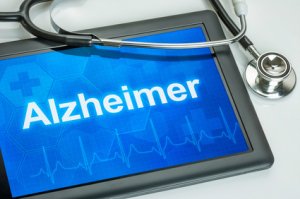 Alzheimer’s disease causes brain malfunctions, and the condition is the leading cause of dementia. According to a studies of humans and mice, there may be a link between borderline vitamin A deficiency and an increased risk of Alzheimer’s disease. Vitamin A is important for the immune system, but it is also a powerful antioxidant that protects neurons and other cells. Vitamin A deficiencies are widespread globally. In the industrialized countries, we mainly see vitamin A deficiencies in connection with unbalanced diets, ageing, and chronic illness.
Alzheimer’s disease causes brain malfunctions, and the condition is the leading cause of dementia. According to a studies of humans and mice, there may be a link between borderline vitamin A deficiency and an increased risk of Alzheimer’s disease. Vitamin A is important for the immune system, but it is also a powerful antioxidant that protects neurons and other cells. Vitamin A deficiencies are widespread globally. In the industrialized countries, we mainly see vitamin A deficiencies in connection with unbalanced diets, ageing, and chronic illness.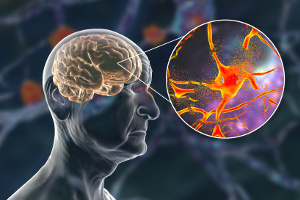 Alzheimer’s is an insidious disease and the leading cause of dementia. It’s also one of the major causes of death in old age. Diet plays a major role in preventing the disease. In fact, having high concentrations of the omega-3 fatty acid, DHA, in the blood can halve the risk of developing Alzheimer’s disease, according to a study that is published in Nutrients. DHA (docosahexaenoic acid) is found in oily fish and fish oil supplements. This essential fatty acid is also found in all our cell membranes (including nerve cells) and plays a key role in maintaining our general health and cognitive skills. Unfortunately, modern diets contain far too little omega-3, but science is not quite sure how much we need.
Alzheimer’s is an insidious disease and the leading cause of dementia. It’s also one of the major causes of death in old age. Diet plays a major role in preventing the disease. In fact, having high concentrations of the omega-3 fatty acid, DHA, in the blood can halve the risk of developing Alzheimer’s disease, according to a study that is published in Nutrients. DHA (docosahexaenoic acid) is found in oily fish and fish oil supplements. This essential fatty acid is also found in all our cell membranes (including nerve cells) and plays a key role in maintaining our general health and cognitive skills. Unfortunately, modern diets contain far too little omega-3, but science is not quite sure how much we need. After giving birth, the mother’s adaptability and resources are put to the test. Also, the mother’s “baby brain” tends to take over. Unfortunately, many new mothers get the baby blues, and around 10 percent develop an actual postpartum depression that requires immediate attention. It is important to focus on the underlying causes that include the course of the delivery plus hormonal, biological, social, and emotional changes.
After giving birth, the mother’s adaptability and resources are put to the test. Also, the mother’s “baby brain” tends to take over. Unfortunately, many new mothers get the baby blues, and around 10 percent develop an actual postpartum depression that requires immediate attention. It is important to focus on the underlying causes that include the course of the delivery plus hormonal, biological, social, and emotional changes. Choline is one of the B vitamins and is necessary for our central nervous system, energy turnover, lipid metabolism, and many other functions. It appears to be a somewhat forgotten nutrient, and science now links choline deficiency to Alzheimer’s disease and cardiovascular diseases, according to a study that is published in the journal Aging Cell.
Choline is one of the B vitamins and is necessary for our central nervous system, energy turnover, lipid metabolism, and many other functions. It appears to be a somewhat forgotten nutrient, and science now links choline deficiency to Alzheimer’s disease and cardiovascular diseases, according to a study that is published in the journal Aging Cell. More and more people are affected by depression, and many do not benefit from medical therapy, which may even cause serious side effects. It is already known that magnesium supplementation can relieve symptoms of depression, but science does not fully understand the exact mechanisms, and it is uncertain magnesium levels in the blood can be used to predict the outcome of therapy. A team of scientists from University of Vermont, USA, wanted to study this closer and they managed to find a relation. It is important to remember not to consume too much calcium in relation to magnesium, as this may stress the cells and set the stage for depression and variety of diseases. The question is how much of these two essential nutrients do we need?
More and more people are affected by depression, and many do not benefit from medical therapy, which may even cause serious side effects. It is already known that magnesium supplementation can relieve symptoms of depression, but science does not fully understand the exact mechanisms, and it is uncertain magnesium levels in the blood can be used to predict the outcome of therapy. A team of scientists from University of Vermont, USA, wanted to study this closer and they managed to find a relation. It is important to remember not to consume too much calcium in relation to magnesium, as this may stress the cells and set the stage for depression and variety of diseases. The question is how much of these two essential nutrients do we need? Vitamin B12 is involved in the making of red blood cells. Its role in our nervous system is often overlooked. According to a large Irish study of older people that is published in British Journal of Nutrition, there is a link between lacking vitamin B12 and feeling depressed. Depression is a growing problem that comes with a huge human and socioeconomic price tag, which makes this study highly relevant. It is especially older people, public health servants, and politicians that should pay extra attention to vitamin B12 deficiencies and how to prevent them with simple and inexpensive means. It should also be noted that vegetarian and vegan diets, low stomach acid, and diabetes medication can increase the risk of having low levels of vitamin B12.
Vitamin B12 is involved in the making of red blood cells. Its role in our nervous system is often overlooked. According to a large Irish study of older people that is published in British Journal of Nutrition, there is a link between lacking vitamin B12 and feeling depressed. Depression is a growing problem that comes with a huge human and socioeconomic price tag, which makes this study highly relevant. It is especially older people, public health servants, and politicians that should pay extra attention to vitamin B12 deficiencies and how to prevent them with simple and inexpensive means. It should also be noted that vegetarian and vegan diets, low stomach acid, and diabetes medication can increase the risk of having low levels of vitamin B12.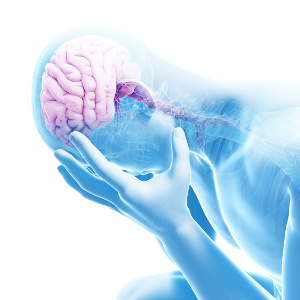 There is a link between depression, dementia and Alzheimer’s disease. Also, it appears that chronic stress contributes to oxidative stress and brain cell damage. In a review article that is published in the science journal Antioxidants, researchers look closer at how oxidative stress affects the brain. They also study how antioxidants can be included in the prevention and treatment of Alzheimer’s disease, and why the most promising results are seen with selenium, Q10, melatonin, vitamin E, turmeric, and polyphenols. With regard to depression, selenium, zinc, vitamin E, turmeric, and saffron have demonstrated the greatest potential.
There is a link between depression, dementia and Alzheimer’s disease. Also, it appears that chronic stress contributes to oxidative stress and brain cell damage. In a review article that is published in the science journal Antioxidants, researchers look closer at how oxidative stress affects the brain. They also study how antioxidants can be included in the prevention and treatment of Alzheimer’s disease, and why the most promising results are seen with selenium, Q10, melatonin, vitamin E, turmeric, and polyphenols. With regard to depression, selenium, zinc, vitamin E, turmeric, and saffron have demonstrated the greatest potential. Far more children are diagnosed with psychiatric disorders today. In the past seven years alone, twice as many cases of ADHD, autism, depression, and fear are diagnosed in Denmark. Communities are under pressure to find teachers, educators, psychologists and other relevant people with the right skills.
Far more children are diagnosed with psychiatric disorders today. In the past seven years alone, twice as many cases of ADHD, autism, depression, and fear are diagnosed in Denmark. Communities are under pressure to find teachers, educators, psychologists and other relevant people with the right skills.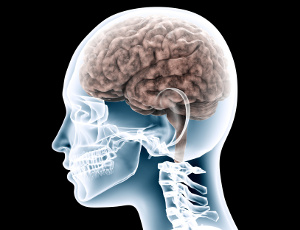 Neuroplasticity refers to the brain ability of brain cells to carry out structural and functional changes that are of vital importance to our development and health. It has been shown that neuroplasticity is impaired in connection with various diseases of the central nervous system, including such conditions as depression and dementia. In a review article that is published in Brain Plasticity, scientists have looked closer at how exercise, the Mediterranean diet, and nutrients like omega-3 and vitamin B12 can improve neuroplasticity by way of a protein called BDNF (brain-derived neurotrophic factor). Selenium is also known to be important for the formation of new brain cells, which can help prevent cognitive decline via other mechanisms.
Neuroplasticity refers to the brain ability of brain cells to carry out structural and functional changes that are of vital importance to our development and health. It has been shown that neuroplasticity is impaired in connection with various diseases of the central nervous system, including such conditions as depression and dementia. In a review article that is published in Brain Plasticity, scientists have looked closer at how exercise, the Mediterranean diet, and nutrients like omega-3 and vitamin B12 can improve neuroplasticity by way of a protein called BDNF (brain-derived neurotrophic factor). Selenium is also known to be important for the formation of new brain cells, which can help prevent cognitive decline via other mechanisms.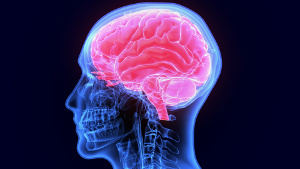 Oily fish and fish oil contain the long-chained omega-3 fatty acids, EPA and DHA, that are of vital importance to the brain, the nervous system, and our mental health throughout life. Today, most people on a global scale lack these omega-3 fatty acids because of altered dietary habits, including the use of unnatural animal fodder. Low intake of omega-3 increases the risk of various ailments such as ADHD, autism, depression, borderline personality disorder (BPD), and bipolar disorder. Fish oil supplementation may therefore offer promise as prevention and part of the therapy used to treat a number of these disorders. The problem with modern diets is their disproportionate content of omega-6 at the expense of omega-3, an imbalance that may derail a number of physiological functions of importance to our mental health, according to a review article published in the science journal, Nutrients.
Oily fish and fish oil contain the long-chained omega-3 fatty acids, EPA and DHA, that are of vital importance to the brain, the nervous system, and our mental health throughout life. Today, most people on a global scale lack these omega-3 fatty acids because of altered dietary habits, including the use of unnatural animal fodder. Low intake of omega-3 increases the risk of various ailments such as ADHD, autism, depression, borderline personality disorder (BPD), and bipolar disorder. Fish oil supplementation may therefore offer promise as prevention and part of the therapy used to treat a number of these disorders. The problem with modern diets is their disproportionate content of omega-6 at the expense of omega-3, an imbalance that may derail a number of physiological functions of importance to our mental health, according to a review article published in the science journal, Nutrients. Depression is often caused by brain inflammation, and it looks as if high-dosed supplementation with EPA, a type of omega-3 fatty acids found in fish oil, may help as it reduces depression in patients with elevated inflammation markers in the blood. This was shown in a study that is published in The Journal of Clinical Psychiatry.
Depression is often caused by brain inflammation, and it looks as if high-dosed supplementation with EPA, a type of omega-3 fatty acids found in fish oil, may help as it reduces depression in patients with elevated inflammation markers in the blood. This was shown in a study that is published in The Journal of Clinical Psychiatry. Magnesium is important for numerous physiological functions. In a new review article published in Nutrients, researchers have looked at the relation between the body’s magnesium levels and a variety of different ageing markers. Also, they hypothesize that optimal intake of magnesium throughout life is an easy and inexpensive way to obtain healthy ageing.
Magnesium is important for numerous physiological functions. In a new review article published in Nutrients, researchers have looked at the relation between the body’s magnesium levels and a variety of different ageing markers. Also, they hypothesize that optimal intake of magnesium throughout life is an easy and inexpensive way to obtain healthy ageing.
 Several studies have revealed that B vitamins strengthen the nervous system and reduce symptoms of stress. However, very few studies have looked at how the individual B vitamins work. A new placebo-controlled study that is published in the science journal, Human Psychopharmacology, appears to show that high-dosed vitamin B6 boosts the body’s formation of a certain neurotransmitter that blocks the exchange of undesirable impulses between brain cells, and this has a calming effect. In addition, vitamin B6 seems to reduce symptoms of depression
Several studies have revealed that B vitamins strengthen the nervous system and reduce symptoms of stress. However, very few studies have looked at how the individual B vitamins work. A new placebo-controlled study that is published in the science journal, Human Psychopharmacology, appears to show that high-dosed vitamin B6 boosts the body’s formation of a certain neurotransmitter that blocks the exchange of undesirable impulses between brain cells, and this has a calming effect. In addition, vitamin B6 seems to reduce symptoms of depression Oily fish and fish oil supplements contain EPA and DHA, two types of omega-3 fatty acids that are important for our brain, nervous system, and mental health throughout life. According to a new Irish study, young adults with higher blood levels of omega-3 are less likely to develop depression and anxiety. The researchers see a huge therapeutic potential in advising people to increase their omega-3 intake from oily fish or supplements. The problem is that modern diets contain far too little omega-3 and too much omega-6, which contributes to the increased rate of mental illness.
Oily fish and fish oil supplements contain EPA and DHA, two types of omega-3 fatty acids that are important for our brain, nervous system, and mental health throughout life. According to a new Irish study, young adults with higher blood levels of omega-3 are less likely to develop depression and anxiety. The researchers see a huge therapeutic potential in advising people to increase their omega-3 intake from oily fish or supplements. The problem is that modern diets contain far too little omega-3 and too much omega-6, which contributes to the increased rate of mental illness. Vitamin B3 (niacin) is important for our nervous system and mental balance. Epidemiological studies have shown that vitamin B3-deficient diets are linked to aggression, and increased prevalence of homicide and suicide among people and cannibalism among animals. More than 60 years ago, Dr. Abram Hoffer observed that high doses of vitamin B3 had a positive effect on schizophrenia, and later studies have shown similar results. Lack of vitamin B3 may be caused by genetic, dietary, or environmental factors that are easy to correct.
Vitamin B3 (niacin) is important for our nervous system and mental balance. Epidemiological studies have shown that vitamin B3-deficient diets are linked to aggression, and increased prevalence of homicide and suicide among people and cannibalism among animals. More than 60 years ago, Dr. Abram Hoffer observed that high doses of vitamin B3 had a positive effect on schizophrenia, and later studies have shown similar results. Lack of vitamin B3 may be caused by genetic, dietary, or environmental factors that are easy to correct. All B vitamins work together as a close-knit team, and they are involved in most of the body’s enzymatic processes. For that reason, lacking one or several B vitamins may cause a long list of different symptoms. We humans depend on a regular supply of B vitamins. A wholesome smoothie or a multivitamin in the morning is no guarantee that the body has enough B vitamins for the rest of the day. Add to that the fact that some factors can impair our nutrient absorption and increase our need for B vitamins. But if you keep your body adequately supplied with B vitamins at all times throughout life, it can work wonders.
All B vitamins work together as a close-knit team, and they are involved in most of the body’s enzymatic processes. For that reason, lacking one or several B vitamins may cause a long list of different symptoms. We humans depend on a regular supply of B vitamins. A wholesome smoothie or a multivitamin in the morning is no guarantee that the body has enough B vitamins for the rest of the day. Add to that the fact that some factors can impair our nutrient absorption and increase our need for B vitamins. But if you keep your body adequately supplied with B vitamins at all times throughout life, it can work wonders. Vitamin B3 plays a crucial role in our brain and nervous system, and it is also important for our mental well-being. Studies suggest that lack of vitamin B3 increases the risk of dementia, Alzheimer’s disease, Parkinson’s disease, and schizophrenia. Moreover, epidemiological studies show that diets without vitamin B3 in them tend to cause aggression and an increased rate of homicide. Too little B3 can be caused by dietary shortages and environmental factors, but it also appears that some people have an increased need for the nutrient due to genetic variations and problems with utilizing the vitamin.
Vitamin B3 plays a crucial role in our brain and nervous system, and it is also important for our mental well-being. Studies suggest that lack of vitamin B3 increases the risk of dementia, Alzheimer’s disease, Parkinson’s disease, and schizophrenia. Moreover, epidemiological studies show that diets without vitamin B3 in them tend to cause aggression and an increased rate of homicide. Too little B3 can be caused by dietary shortages and environmental factors, but it also appears that some people have an increased need for the nutrient due to genetic variations and problems with utilizing the vitamin.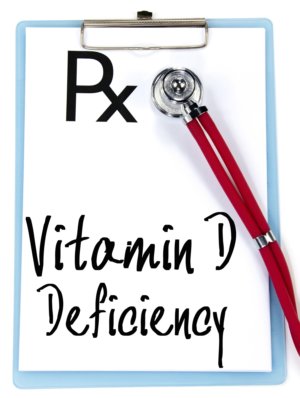
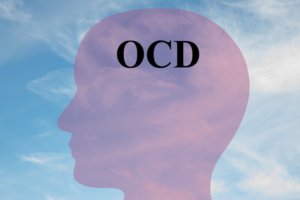
 An estimated 350 million people worldwide suffer from depression, a disease with huge economic and human costs. Not everyone benefits from the traditional medical treatment, which can even cause various side effects, so there is every reason in the world to aim for more prevention and better therapies. A new study that is published in PLoS One shows that magnesium supplements are effective as an adjuvant in mild or moderate depression. The researchers have also discovered which biochemical effect magnesium has on mood.
An estimated 350 million people worldwide suffer from depression, a disease with huge economic and human costs. Not everyone benefits from the traditional medical treatment, which can even cause various side effects, so there is every reason in the world to aim for more prevention and better therapies. A new study that is published in PLoS One shows that magnesium supplements are effective as an adjuvant in mild or moderate depression. The researchers have also discovered which biochemical effect magnesium has on mood. Stress is associated with a host of physical and psychological health problems such as headache, fatigue, tension, insomnia, sore throat, constipation, flu-like symptoms, depression, and anxiety. Stress is not all in your mind. It is a physiological condition that affects the whole body and increases your need for specific nutrients. Earlier studies carried out with humans and animals have shown that supplements of magnesium and vitamin B6 both have the potential to reduce stress symptoms. Now, a team of French scientists has carried out a randomized study showing for the first time ever that a combination of magnesium and vitamin B6 administered to people with severe stress and magnesium deficiency works better than magnesium supplementation alone.
Stress is associated with a host of physical and psychological health problems such as headache, fatigue, tension, insomnia, sore throat, constipation, flu-like symptoms, depression, and anxiety. Stress is not all in your mind. It is a physiological condition that affects the whole body and increases your need for specific nutrients. Earlier studies carried out with humans and animals have shown that supplements of magnesium and vitamin B6 both have the potential to reduce stress symptoms. Now, a team of French scientists has carried out a randomized study showing for the first time ever that a combination of magnesium and vitamin B6 administered to people with severe stress and magnesium deficiency works better than magnesium supplementation alone. Magnesium takes part in over 300 different enzyme processes, some of which are relevant for the nervous system. Magnesium deficiencies are common, and there is a link to the increased prevalence of subjective anxiety and stress. Researchers from the University of Leeds in Great Britain have reviewed a number of studies that show how supplementation with magnesium may help in cases of mild anxiety, stress, and depression. Magnesium appears to be a precondition of a healthy and sturdy nervous system, and getting enough of this nutrient is therefore important for preventing these conditions.
Magnesium takes part in over 300 different enzyme processes, some of which are relevant for the nervous system. Magnesium deficiencies are common, and there is a link to the increased prevalence of subjective anxiety and stress. Researchers from the University of Leeds in Great Britain have reviewed a number of studies that show how supplementation with magnesium may help in cases of mild anxiety, stress, and depression. Magnesium appears to be a precondition of a healthy and sturdy nervous system, and getting enough of this nutrient is therefore important for preventing these conditions. The number of older people is on the rise, and so is the number of people who suffer from dementia and die as a result of this condition. If you increase your dietary intake of magnesium, however, and get more than what is officially recommended, it helps keep your brain sharp and prevents dementia, according to a large population study that is published in European Journal of Nutrition. Many older people don’t eat enough and even take different kinds of medicine that block the body’s uptake and utilization of magnesium. So, how does magnesium affect the brain and nervous system? And how much do we need to stay mentally alert throughout life? Those are the questions.
The number of older people is on the rise, and so is the number of people who suffer from dementia and die as a result of this condition. If you increase your dietary intake of magnesium, however, and get more than what is officially recommended, it helps keep your brain sharp and prevents dementia, according to a large population study that is published in European Journal of Nutrition. Many older people don’t eat enough and even take different kinds of medicine that block the body’s uptake and utilization of magnesium. So, how does magnesium affect the brain and nervous system? And how much do we need to stay mentally alert throughout life? Those are the questions. Ageing is characterized by increased physical and mental frailty that reduces one’s ability to deal with various external stress factors. Omega-3 fatty acids that are found in oily fish and fish oil supplements are believed to prevent frailty through their immune-regulating and anti-inflammatory properties, but studies have shown conflicting results. Nonetheless, daily intake of two grams of omega-3 appears to reduce frailty. According to a large population study that is published in Frontiers in Nutrition, it is also important to include moderate quantities of high-quality omega-6.
Ageing is characterized by increased physical and mental frailty that reduces one’s ability to deal with various external stress factors. Omega-3 fatty acids that are found in oily fish and fish oil supplements are believed to prevent frailty through their immune-regulating and anti-inflammatory properties, but studies have shown conflicting results. Nonetheless, daily intake of two grams of omega-3 appears to reduce frailty. According to a large population study that is published in Frontiers in Nutrition, it is also important to include moderate quantities of high-quality omega-6. The two omega-3 fatty acids, EPA and DHA, are of vital importance to the development of a baby’s brain and central nervous system during pregnancy and the first years of life. The best sources of these fatty acids are oily fish and fish oil supplements. There is widespread deficiency of these fatty acids, which increases the risk of a lower IQ, ADHD, depression, or other neurological disturbances in the baby, according to a review article published in Nutrients. It is also important for brain health to balance one’s intake of omega-3 and omega-6.
The two omega-3 fatty acids, EPA and DHA, are of vital importance to the development of a baby’s brain and central nervous system during pregnancy and the first years of life. The best sources of these fatty acids are oily fish and fish oil supplements. There is widespread deficiency of these fatty acids, which increases the risk of a lower IQ, ADHD, depression, or other neurological disturbances in the baby, according to a review article published in Nutrients. It is also important for brain health to balance one’s intake of omega-3 and omega-6.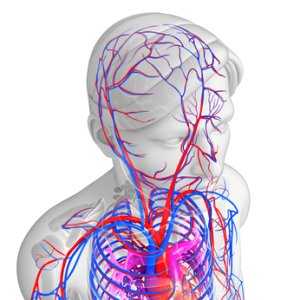 People with elevated levels of omega-3 fatty acids in their blood have better circulation in those parts of the brain that handle learning, language, memory, and other cognitive functions, according to a recent report that is published in the Journal of Alzheimer’s Disease. The scientists also observed a link between blood levels of omega-3 and the rate of dementia and depression. They call their study an important discovery that supports earlier studies, which have shown how simple dietary adjustments such as increasing your intake of oily fish or fish oil supplements help preserve mental skills and a healthy mind.
People with elevated levels of omega-3 fatty acids in their blood have better circulation in those parts of the brain that handle learning, language, memory, and other cognitive functions, according to a recent report that is published in the Journal of Alzheimer’s Disease. The scientists also observed a link between blood levels of omega-3 and the rate of dementia and depression. They call their study an important discovery that supports earlier studies, which have shown how simple dietary adjustments such as increasing your intake of oily fish or fish oil supplements help preserve mental skills and a healthy mind. Schizophrenia is a serious psychotic condition with delusions and hallucinations, which can be very taxing for the sufferer as well as for the rest of the family. Most people experience a slow and gradual worsening of the brain ailment, and the disease may even spread to other organs. On average, people who suffer from schizophrenia die 10 years earlier than the general population, which is why it is vital to prevent the disease or ameliorate its symptoms. Scientists have discovered that supplementing with omega-3 fatty acids has a positive effect for several reasons.
Schizophrenia is a serious psychotic condition with delusions and hallucinations, which can be very taxing for the sufferer as well as for the rest of the family. Most people experience a slow and gradual worsening of the brain ailment, and the disease may even spread to other organs. On average, people who suffer from schizophrenia die 10 years earlier than the general population, which is why it is vital to prevent the disease or ameliorate its symptoms. Scientists have discovered that supplementing with omega-3 fatty acids has a positive effect for several reasons. Early stages of psychotic diseases such as schizophrenia are associated with deficiencies of specific nutrients like vitamin D and folic acid, according to a new Australian study. The researchers also point to new ways of preventing and treating psychotic disease, which affect millions of people worldwide.
Early stages of psychotic diseases such as schizophrenia are associated with deficiencies of specific nutrients like vitamin D and folic acid, according to a new Australian study. The researchers also point to new ways of preventing and treating psychotic disease, which affect millions of people worldwide. A growing number of people are affected by depression and anxiety, and there are quite a few who do not benefit from their medicine, which in some cases may even cause side effects. Earlier studies show that lack of omega-3, the essential fatty acids found primarily in oily fish, play a major role in depression. The question is how important is omega-3 for those, who already receive therapy for their depression, and what about those in therapy for anxiety? A group of Dutch scientists set out to answer this question. A thing to make a note of is that it is the two omega-3 fatty acids, EPA and DHA, which have a direct influence on our mood, and when supplementing, it may take some time before the effect is optimal.
A growing number of people are affected by depression and anxiety, and there are quite a few who do not benefit from their medicine, which in some cases may even cause side effects. Earlier studies show that lack of omega-3, the essential fatty acids found primarily in oily fish, play a major role in depression. The question is how important is omega-3 for those, who already receive therapy for their depression, and what about those in therapy for anxiety? A group of Dutch scientists set out to answer this question. A thing to make a note of is that it is the two omega-3 fatty acids, EPA and DHA, which have a direct influence on our mood, and when supplementing, it may take some time before the effect is optimal. Vitamin B1 is particularly important for carbohydrate metabolism, mental balance, and the production of gastric juice, which is essential for your digestion. Deficiencies and poor utilization of the nutrient typically occur as a result of unhealthy diets, lack of magnesium, overconsumption of sugar, alcohol, and other stimulants, and regular use of birth control pills and diuretics. The reason why alcoholics can binge drink is chronic vitamin B1 deficiency and life-threatening brain inflammation, both of which are problems that require immediate attention, according to a new review article in StatPearls. It is also believed that large quantities of vitamin B1 may prevent mosquito bites, but is this really true?
Vitamin B1 is particularly important for carbohydrate metabolism, mental balance, and the production of gastric juice, which is essential for your digestion. Deficiencies and poor utilization of the nutrient typically occur as a result of unhealthy diets, lack of magnesium, overconsumption of sugar, alcohol, and other stimulants, and regular use of birth control pills and diuretics. The reason why alcoholics can binge drink is chronic vitamin B1 deficiency and life-threatening brain inflammation, both of which are problems that require immediate attention, according to a new review article in StatPearls. It is also believed that large quantities of vitamin B1 may prevent mosquito bites, but is this really true? Schizophrenia, a brain disease, is an extreme burden to the patient as well as to the patient’s family. However, a large meta-analysis published in Psychological Medicine documents that adjuvant therapy with large doses of vitamin B6, vitamin B12 and biotin (vitamin B8) in combination with standard therapy can reduce the symptoms more effectively than standard therapy alone. It is an advantage to start taking high-dosed B vitamin supplements as early as possible in the disease course. There are several reasons why B vitamins have such a great impact on the brain and our mental health
Schizophrenia, a brain disease, is an extreme burden to the patient as well as to the patient’s family. However, a large meta-analysis published in Psychological Medicine documents that adjuvant therapy with large doses of vitamin B6, vitamin B12 and biotin (vitamin B8) in combination with standard therapy can reduce the symptoms more effectively than standard therapy alone. It is an advantage to start taking high-dosed B vitamin supplements as early as possible in the disease course. There are several reasons why B vitamins have such a great impact on the brain and our mental health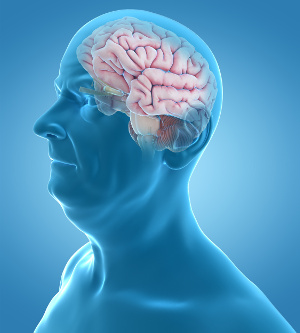 There seems to be a relation between ageing, Alzheimer’s disease, and the widespread problems with selenium deficiency. According to a new study that is published in Antioxidants, scientist have revealed how different selenium-containing proteins can affect pathological processes in the brain that are known to cause Alzheimer’s disease. They believe selenium may have therapeutical potential in the treatment of this disease, which is one of the greatest disease burdens and a leading cause of death among seniors. Selenium also helps in the prevention of the disease, which is extremely important because it is often difficult to diagnose Alzheimer’s disease in its early stages.
There seems to be a relation between ageing, Alzheimer’s disease, and the widespread problems with selenium deficiency. According to a new study that is published in Antioxidants, scientist have revealed how different selenium-containing proteins can affect pathological processes in the brain that are known to cause Alzheimer’s disease. They believe selenium may have therapeutical potential in the treatment of this disease, which is one of the greatest disease burdens and a leading cause of death among seniors. Selenium also helps in the prevention of the disease, which is extremely important because it is often difficult to diagnose Alzheimer’s disease in its early stages. Stress and magnesium deficiency are widespread problems in the general population. It’s a vicious cycle that increases the risk of fatigue, headaches, constipation, nervousness, insomnia, infections, depression, metabolic syndrome, and a number of physical and mental diseases. In a review article that is published in Nutrients, the authors look closer at magnesium’s key role in the body’s physiological stress response. They also address the fact that stress increases the need for magnesium. Moreover, nutrient-depleted soil, unhealthy diets, too much coffee, alcohol, and calcium plus certain types of medicine, intensive sport, menopause, and ageing increase the need for magnesium even more.
Stress and magnesium deficiency are widespread problems in the general population. It’s a vicious cycle that increases the risk of fatigue, headaches, constipation, nervousness, insomnia, infections, depression, metabolic syndrome, and a number of physical and mental diseases. In a review article that is published in Nutrients, the authors look closer at magnesium’s key role in the body’s physiological stress response. They also address the fact that stress increases the need for magnesium. Moreover, nutrient-depleted soil, unhealthy diets, too much coffee, alcohol, and calcium plus certain types of medicine, intensive sport, menopause, and ageing increase the need for magnesium even more. More and more people experience despair and depression. There can be several underlying factors but according to a large German population study, lack of vitamin D increases the risk of depressive symptoms. The scientists explain how vitamin reduces local inflammation in the brain, which increases the risk of developing a depression. That is why it is so important to get plenty of vitamin D all year round because the nutrient affects our mood and energy level in a variety of ways.
More and more people experience despair and depression. There can be several underlying factors but according to a large German population study, lack of vitamin D increases the risk of depressive symptoms. The scientists explain how vitamin reduces local inflammation in the brain, which increases the risk of developing a depression. That is why it is so important to get plenty of vitamin D all year round because the nutrient affects our mood and energy level in a variety of ways.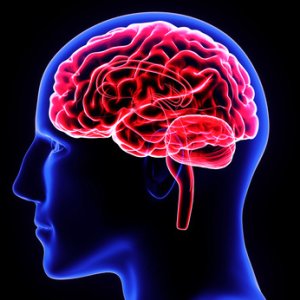 It is commonly known that vitamin C has an essential role in our connective tissue and immune defense. However, vitamin C is also vital for the brain. This was demonstrated in a new Australian study of the link between vitamin C and cognitive functions like memory, lingual skills, calculation, and orientation. The scientists also point to the fact that vitamin C deficiency is rather common in western countries, either due to dietary factors or because of conditions that increase the need for the nutrient.
It is commonly known that vitamin C has an essential role in our connective tissue and immune defense. However, vitamin C is also vital for the brain. This was demonstrated in a new Australian study of the link between vitamin C and cognitive functions like memory, lingual skills, calculation, and orientation. The scientists also point to the fact that vitamin C deficiency is rather common in western countries, either due to dietary factors or because of conditions that increase the need for the nutrient. The diet’s content of vitamin C, vitamin B6, vitamin B12, folic acid, and other vitamins has a positive impact on our mental and physical health and well-being Lack of vitamins may even remedy depression and chronic pain, according to a Japanese study of seniors. The number of seniors worldwide is increasing with more and more people being affected by physical and mental disease. Therefore, scientists want to take a closer look at the diet and its influence on quality of life measured by different accounts.
The diet’s content of vitamin C, vitamin B6, vitamin B12, folic acid, and other vitamins has a positive impact on our mental and physical health and well-being Lack of vitamins may even remedy depression and chronic pain, according to a Japanese study of seniors. The number of seniors worldwide is increasing with more and more people being affected by physical and mental disease. Therefore, scientists want to take a closer look at the diet and its influence on quality of life measured by different accounts.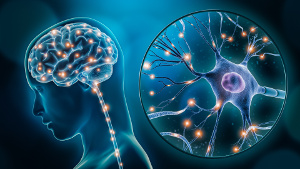 Neurologists agree that the brain’s neurons constantly change in relation to stimuli from the inside and outside environment. That is how we learn new skills and develop our memory. The brain’s ability to adapt and change is called neuroplasticity and doctors have suspected for a long time that it takes place in the synapses. A team of scientists from the University of Freiburg in Germany has discovered that a vitamin A-like compound affects the neurons and their ability to adapt to structure and function. The scientists hope that their discovery can contribute to the development of new therapies for treating brain disorders. Earlier studies have shown that omega-3 fatty acids, vitamin D, and lifestyle in general also affect the brain’s neuroplasticity and development.
Neurologists agree that the brain’s neurons constantly change in relation to stimuli from the inside and outside environment. That is how we learn new skills and develop our memory. The brain’s ability to adapt and change is called neuroplasticity and doctors have suspected for a long time that it takes place in the synapses. A team of scientists from the University of Freiburg in Germany has discovered that a vitamin A-like compound affects the neurons and their ability to adapt to structure and function. The scientists hope that their discovery can contribute to the development of new therapies for treating brain disorders. Earlier studies have shown that omega-3 fatty acids, vitamin D, and lifestyle in general also affect the brain’s neuroplasticity and development. Alcohol is one of the most compromising factors when it comes to public health, and alcohol abuse comes at an enormous cost, both to the individual and to society. A large alcohol consumption contributes as a factor to insidious dementia, but according to a new study from Taiwan, supplementing with vitamin B1 (thiamine) may prevent alcohol-induced dementia. The scientists that have conducted the study therefore point to vitamin B1 supplementation as having an important role in the treatment plan for people with alcohol abuse problems and to prevent dementia from developing or progressing.
Alcohol is one of the most compromising factors when it comes to public health, and alcohol abuse comes at an enormous cost, both to the individual and to society. A large alcohol consumption contributes as a factor to insidious dementia, but according to a new study from Taiwan, supplementing with vitamin B1 (thiamine) may prevent alcohol-induced dementia. The scientists that have conducted the study therefore point to vitamin B1 supplementation as having an important role in the treatment plan for people with alcohol abuse problems and to prevent dementia from developing or progressing. Alzheimer’s disease causes the brain to malfunction and is therefore the leading cause of dementia. According to a new American study, a particular form of vitamin B3 may help prevent neurological damage and therefore has a positive impact on Alzheimer’s patients. As part of the prevention of this disease, it is also important to make sure to get plenty of all the other nutrients.
Alzheimer’s disease causes the brain to malfunction and is therefore the leading cause of dementia. According to a new American study, a particular form of vitamin B3 may help prevent neurological damage and therefore has a positive impact on Alzheimer’s patients. As part of the prevention of this disease, it is also important to make sure to get plenty of all the other nutrients.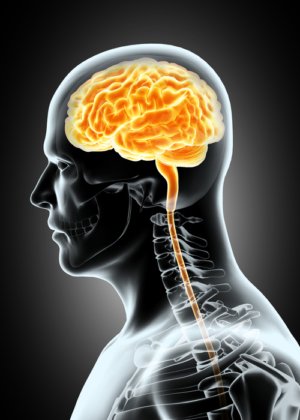 Most people think of vitamin C in connection with the immune defense, but as it turns out, the largest concentration of vitamin C is actually found in the brain. This is because vitamin C is enormously important for the energy turnover, the nervous system, and the cognitive skills, and this is described in a new review article. There is also evidence of widespread vitamin C deficiency, which may eventually impair cognitive skills and increase the risk of dementia and Alzheimer’s disease. If a pregnant woman lacks vitamin C, it can disrupt the development of the baby’s brain. There is a number of factors that increase our need for the nutrient, so the big question is how much do we need to secure optimal brain function throughout life?
Most people think of vitamin C in connection with the immune defense, but as it turns out, the largest concentration of vitamin C is actually found in the brain. This is because vitamin C is enormously important for the energy turnover, the nervous system, and the cognitive skills, and this is described in a new review article. There is also evidence of widespread vitamin C deficiency, which may eventually impair cognitive skills and increase the risk of dementia and Alzheimer’s disease. If a pregnant woman lacks vitamin C, it can disrupt the development of the baby’s brain. There is a number of factors that increase our need for the nutrient, so the big question is how much do we need to secure optimal brain function throughout life? Recent studies reveal that vitamin D and omega-3 fatty acids are able to prevent and ameliorate a number of neurological ailments such as depression, ADHD, bipolar disorder, autism, and schizophrenia. There is evidence suggesting that vitamin D and omega-3 fatty acids work by controlling the synthesis of serotonin in the brain. The listed neurological conditions are all characterized by defects in the body’s synthesis of this important neurotransmitter. It is therefore vital to get plenty of sunshine, vitamin D, and omega-3 fatty acids, as widespread deficiencies in all three most likely contribute to the increasing rate of different neurological disorders.
Recent studies reveal that vitamin D and omega-3 fatty acids are able to prevent and ameliorate a number of neurological ailments such as depression, ADHD, bipolar disorder, autism, and schizophrenia. There is evidence suggesting that vitamin D and omega-3 fatty acids work by controlling the synthesis of serotonin in the brain. The listed neurological conditions are all characterized by defects in the body’s synthesis of this important neurotransmitter. It is therefore vital to get plenty of sunshine, vitamin D, and omega-3 fatty acids, as widespread deficiencies in all three most likely contribute to the increasing rate of different neurological disorders.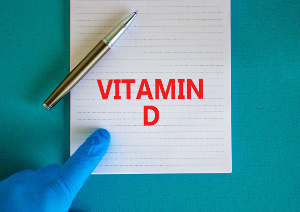
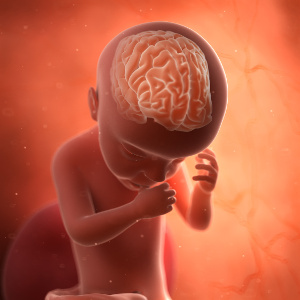 During pregnancy, vitamin D plays an important role in the bone development of the unborn child, in the brain, and in other functions. Maternal lack of vitamin D during pregnancy may therefore have serious consequences for the fetus and its development. This also goes for the development of neurons in the dopamine-producing area of the brain, which can most likely result in dysfunctions of the dopamine balance, a problem that is seen in young individuals and adults with schizophrenia. This was demonstrated in a new study that is published in Journal of Neurochemistry. The study supports an earlier review article where it was seen that early stages of psychotic disorders like schizophrenia are linked to severe deficiencies of vitamin D and other nutrients with vital importance to brain health, especially during pregnancy.
During pregnancy, vitamin D plays an important role in the bone development of the unborn child, in the brain, and in other functions. Maternal lack of vitamin D during pregnancy may therefore have serious consequences for the fetus and its development. This also goes for the development of neurons in the dopamine-producing area of the brain, which can most likely result in dysfunctions of the dopamine balance, a problem that is seen in young individuals and adults with schizophrenia. This was demonstrated in a new study that is published in Journal of Neurochemistry. The study supports an earlier review article where it was seen that early stages of psychotic disorders like schizophrenia are linked to severe deficiencies of vitamin D and other nutrients with vital importance to brain health, especially during pregnancy.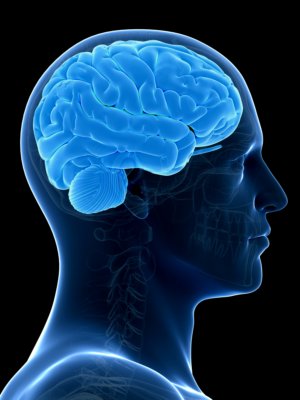 Psychological disorders represent society’s single largest disease burden, and an increasing number of people are affected by it. There can be a variety of causes, and lack of vitamin D appears to be an alarming risk factor. This is because vitamin D is involved in a host of different functions that are relevant for brain neurons, including signaling substances and the brain’s reward system that affects our mood. Vitamin D also helps protect the brain against toxins, atherosclerosis, and inflammation, according to a review article that is published in the science journal Cureus. But there are questions that need to be answered. How much vitamin D do we need? Can we get enough from sun exposure? Is there enough vitamin D in a regular vitamin pill? Why do children, seniors, pregnant women, overweight individuals, and dark-skinned people have an increased need for vitamin D? And which mineral is extremely important for the body’s ability to utilize vitamin D?
Psychological disorders represent society’s single largest disease burden, and an increasing number of people are affected by it. There can be a variety of causes, and lack of vitamin D appears to be an alarming risk factor. This is because vitamin D is involved in a host of different functions that are relevant for brain neurons, including signaling substances and the brain’s reward system that affects our mood. Vitamin D also helps protect the brain against toxins, atherosclerosis, and inflammation, according to a review article that is published in the science journal Cureus. But there are questions that need to be answered. How much vitamin D do we need? Can we get enough from sun exposure? Is there enough vitamin D in a regular vitamin pill? Why do children, seniors, pregnant women, overweight individuals, and dark-skinned people have an increased need for vitamin D? And which mineral is extremely important for the body’s ability to utilize vitamin D? Vitamin D is involved in the development of the brain structure and in brain functions. According to a review article that is published in Nutrients, vitamin D is of particularly great importance to the mental health of children and teenagers due to its long-term effect. This subject is highly topical as it is known that the widespread lack of vitamin D among children increases their risk of anxiety, depression, aggressive behavior, and other mental problems. It is vital for children and teenagers to get plenty of sun and supplements if necessary so they are sure to meet the new guidelines for vitamin D.
Vitamin D is involved in the development of the brain structure and in brain functions. According to a review article that is published in Nutrients, vitamin D is of particularly great importance to the mental health of children and teenagers due to its long-term effect. This subject is highly topical as it is known that the widespread lack of vitamin D among children increases their risk of anxiety, depression, aggressive behavior, and other mental problems. It is vital for children and teenagers to get plenty of sun and supplements if necessary so they are sure to meet the new guidelines for vitamin D. The risk of dementia and neurological disorders increases with age. Diet plays an important role and it is assumed that the widespread lack of vitamin K2 is particularly relevant. In order to test this hypothesis, a group of scientists measured levels of vitamin K2 in the brains of deceased seniors. They found significantly fewer cases of cognitive decline, dementia, and Alzheimer’s disease in brains with higher K2 levels. This has something to do with the fact that vitamin K2 counteracts atherosclerosis, accumulation of harmful protein, and brain inflammation. The study is published in the journal Alzheimer’s & Dementia and sheds a whole new light on vitamin K’s potential role in brain health and the importance of getting enough of this nutrient.
The risk of dementia and neurological disorders increases with age. Diet plays an important role and it is assumed that the widespread lack of vitamin K2 is particularly relevant. In order to test this hypothesis, a group of scientists measured levels of vitamin K2 in the brains of deceased seniors. They found significantly fewer cases of cognitive decline, dementia, and Alzheimer’s disease in brains with higher K2 levels. This has something to do with the fact that vitamin K2 counteracts atherosclerosis, accumulation of harmful protein, and brain inflammation. The study is published in the journal Alzheimer’s & Dementia and sheds a whole new light on vitamin K’s potential role in brain health and the importance of getting enough of this nutrient. Magnesium plays a vital role in the body’s calcium distribution and is involved in over 300 enzyme processes that are relevant for our bones, circulatory system, muscles, nervous system, blood pressure, blood sugar levels, immune system, and utilization of vitamin D. For that reason, too little magnesium increases your risk of osteoporosis, diabetes, cardiovascular disease, migraine headaches, infections, PMS, plus anxiety and other neurological disorders. This is highlighted in a review article published by Medical News Today. It is therefore important to be aware of all the overlooked factors that may cause a magnesium deficiency.
Magnesium plays a vital role in the body’s calcium distribution and is involved in over 300 enzyme processes that are relevant for our bones, circulatory system, muscles, nervous system, blood pressure, blood sugar levels, immune system, and utilization of vitamin D. For that reason, too little magnesium increases your risk of osteoporosis, diabetes, cardiovascular disease, migraine headaches, infections, PMS, plus anxiety and other neurological disorders. This is highlighted in a review article published by Medical News Today. It is therefore important to be aware of all the overlooked factors that may cause a magnesium deficiency. We have relatively large quantities of zinc in our central nervous system where it plays a vital role in various physiological and pathological processes. Zinc is also important for brain development, various gene activities, the formation of new neurons, and the immune defense. What is more, zinc is a vital antioxidant that protects the brain against calcification and cell damage caused by oxidative stress. Zinc deficiency is a global problem and may be involved in a number of different neurological diseases – including stroke, cognitive impairment, Alzheimer’s disease, and depression, according to a new review article that is published in Biomolecules.
We have relatively large quantities of zinc in our central nervous system where it plays a vital role in various physiological and pathological processes. Zinc is also important for brain development, various gene activities, the formation of new neurons, and the immune defense. What is more, zinc is a vital antioxidant that protects the brain against calcification and cell damage caused by oxidative stress. Zinc deficiency is a global problem and may be involved in a number of different neurological diseases – including stroke, cognitive impairment, Alzheimer’s disease, and depression, according to a new review article that is published in Biomolecules. "After about one week of taking the Q10 supplement I could feel a huge difference," says 23-year old Alan Piccini, who has been suffering from extreme fatigue and muscle aches ever since he was a child.
"After about one week of taking the Q10 supplement I could feel a huge difference," says 23-year old Alan Piccini, who has been suffering from extreme fatigue and muscle aches ever since he was a child. “Taking capsules with co-enzyme Q10 has freed me of the severe side effects of my cholesterol lowering medicine,” Mrs Franken explains.
“Taking capsules with co-enzyme Q10 has freed me of the severe side effects of my cholesterol lowering medicine,” Mrs Franken explains.